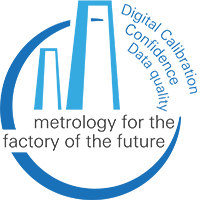Questionnaire to Stakeholders and Collaborators for 17IND12 Met4FoF
Preparing for the second half of the project’s lifetime
Within its first 18 months, the EMPIR Metrology for the Factory of the Future (Met4FoF) project has developed the foundations for digital calibration and sensor network metrology. Now it is time to set the course for the second half of the project.
In order to ensure that our developments and outputs are aligned as closely as possible to the needs of you and your customers, we would like you to answer the following questions. Not all the questions will be relevant to you – just leave blank those that do not apply.

